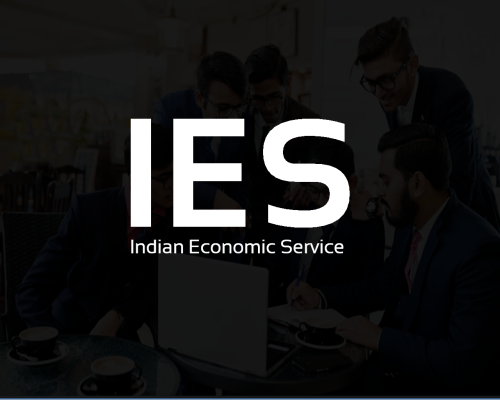Exam Date: August 17, 2025
The Indian Economic Service (IES) examination is conducted annually by the Union Public Service Commission (UPSC) to recruit officers into the Indian Economic Service, a Group A central civil service under the Government of India. These officers are primarily responsible for economic analysis and policy formulation across various ministries, including the Ministry of Finance, NITI Aayog, and the Ministry of Commerce and Industry.
1. Understand the Exam Pattern
The ESE exam has 3 stages:
Stage Name Type Marks
Stage 1 Preliminary Exam (Objective) Paper I (GS & Engg Aptitude) + Paper II (Tech) 500
Stage 2 Mains Exam (Conventional) Two technical papers (subjective) 600
Stage 3 Interview Personality Test 200
2. Know the Syllabus Thoroughly
UPSC's ESE syllabus is well-defined. Focus on:
Core subjects of your stream (CE, ME, EE, ECE)
Paper I (General Studies & Engineering Aptitude): Includes environment, ethics, ICT, project management, etc.
Download UPSC's official syllabus PDF and map each topic to study material.
3. Subject-Wise Preparation Strategy
Technical Subjects (Paper II + Mains Papers):
Study from standard textbooks (e.g., RK Rajput, Hibbeler, B.L. Theraja, etc.)
Focus on conceptual clarity, not just formulas
Solve previous 10 years of ESE papers topic-wise
Practice numericals + derivations for Mains
Paper I – General Studies & Engineering Aptitude:
Often neglected but crucial!
Study topics like:
Engineering Mathematics & ICT
Ethics and Values
Environmental Engineering
Engineering Drawing
Project Management
Use Made Easy GS notes or equivalent for this.
4. Prepare for Mains Early (Don’t Wait)
Mains is subjective—answer writing is key.
Practice 2–3 descriptive answers weekly.
Focus on:
Structured format
Neat diagrams
Step-wise solutions
Time management
5. Practice with a Time-Bound Plan
Sample Daily Study Plan (Full-time):
3–4 hours: Technical theory + notes
1 hour: GS/Ethics/Maths
1–2 hours: Practice (MCQs or writing)
1 hour: Revision + error analysis
Adjust as per your available time.
6. Take Mock Tests
Join a reliable test series (e.g., Made Easy, IES Master)
Start Prelims mocks 3 months before the exam
For Mains, practice test-like answer writing
7. Revision & Notes
Make short revision notes from Day 1
Use color codes and flowcharts
Final 30–45 days: Only revise & solve PYQs/mock papers
8. Prepare for the Interview (Stage 3)
Stay updated on technical topics + current affairs
Practice mock interviews (body language, confidence)
Know your DAF (Detailed Application Form) well
Prepare questions from your project, internship, and favorite subjects
9. Study Materials (Stream-Wise)
Stream Key Books
CE SS Bhavikatti, BC Punmia, Jain & Jain
ME PK Nag, RS Khurmi, DS Kumar
EE JB Gupta, VK Mehta, Nagrath & Kothari
ECE Sedra & Smith, Millman, Ramesh Gaonkar
Notification Release: February 12, 2025
Application Deadline: March 4, 2025
Examination Dates: June 20–22, 2025
Admit Card Release: June 11, 2025
IES (Indian Engineering Services), officially known as ESE (Engineering Services Examination), is a national-level exam conducted by UPSC to recruit engineers for Group A posts in various central government departments such as:
Indian Railways
Central Engineering Service
Central Water Engineering
Defence Engineering Services
and others.
Educational Qualification:
A degree in Engineering (B.E./B.Tech) from a recognized university.
Final year students can also apply.
Age Limit:
21 to 30 years (as of January 1 of the exam year)
Age relaxation:
OBC: +3 years
SC/ST: +5 years
Govt. servants/ex-servicemen/PwD: as per UPSC norms
Only four branches are eligible:
Civil Engineering
Mechanical Engineering
Electrical Engineering
Electronics & Telecommunication Engineering
Apply online through the UPSC official website: https://www.upsc.gov.in
General/OBC (Male): ₹200
SC/ST/PwD/Women: No fee
